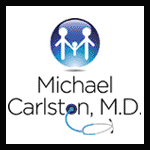
The ancients knew that children of a certain age pass through a change that is profound. In their metamorphic transition from childhood to adulthood, they become different beings.
For a long, long time now we have known that the change increases their need for sleep and shifts their biological clocks. The consequence is that they tend to fall asleep late and then wake up much later. Despite the presumptions of some early-rising adults, it isn’t laziness.
In our world this transformation takes place from middle school through high school. As you might then imagine, early school start times are a problem. In my practice, the most common complaint of children of this age and their parents, has been that they get sick a lot. Their illnesses don’t tend to be serious but the children get sick again and again and again.
Also, their in school performance suffers, leading to poorer grades. On any given day, twenty percent of high school students fall asleep during class. Several years ago, it came to light that high school students whose biological clocks made them early risers, got better grades than their more physiologically typical classmates
For most adolescents, the years they are working as hard as possible so that they can get into the college of their dreams, are the same years that the physiological demands of their bodies are directly in conflict with those efforts. This school-generated chronic sleep deprivation also leads to mood problems. Hmmm, moody teenagers? I bet that sounds familiar. Sleep deprivation also make it difficult to concentrate. Attention Deficit Hyperactivity Disorder (ADHD) anyone? Just like adults, teens then fall into patterns of chemical abuse, turning to coffee and other stimulants to stay awake and drugs like alcohol to help them fall asleep.
This is not a trifle. It is a serious health issue. One of every six car crashes in this country has been linked to sleep deprivation. The majority of those involve drivers under age 25.
The Minnesota Medical Association responded to these discoveries with a resolution calling for recognition, education and behavioral changes to addresses the individual and societal health consequences. Promoted by the MMA, the American Medical Association adopted a similar resolution. In 1999, the US Congress considered legislation (H.R. 1267 Sponsored by California Representative Zoe Lofgren) recommending that high schools start classes after 9 am providing additional funds to school districts implementing this change. The bill did not pass at that time and, despite attempts, the bill was never passed.
Despite inaction at the national level, changes were implemented in Minnesota. Students there are now more likely to eat breakfast, one of the nutritional habits most closely associated with overall health. Teachers comment that students are more alert and attentive in class. Many students said they felt better and performed better following the scheduling change. Those who did not report feeling better generally complained of problems the new schedule created for their after-school activities.
The CDC and US Department of Education at least continue to describe the problem. In August a CDC department again commented on the problem. The “low lights” they noted were that less than 1/3 of high schools get at least 8 hours of sleep (remember they need even more at that age) and children who don’t get enough sleep are more likely to suffer from depressive, weight problems, smoke cigarettes, abuse drugs and alcohol. By the way, they also do poorly in school. The American Academy of Pediatrics recommends school start times of 8:30 or later in this age range. Hah! Less than 18% of US schools comply with that recommendation.
Sleep is one of the essential health habits I love to go on about. This is vitally important and cannot be ignored.
Sure, do the right things – expose your child to bright morning light and create an evening environment conducive to good sleep (limit screen time, eat early, calm household, etc). However, I think doing the right thing also means standing up for our kids and changing school start times.
